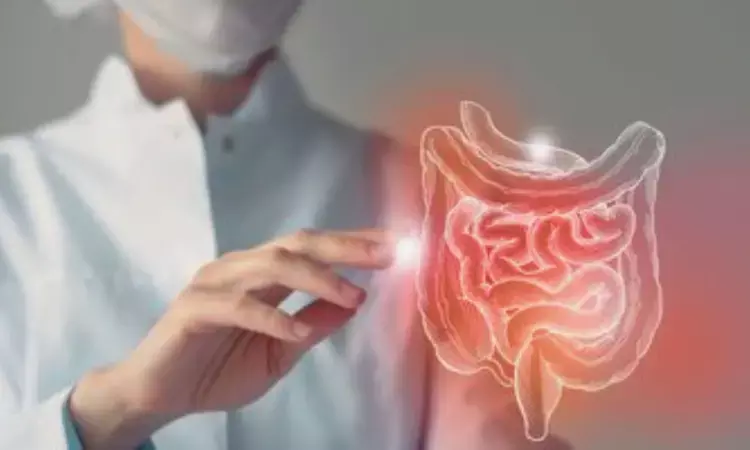- Home
- Medical news & Guidelines
- Anesthesiology
- Cardiology and CTVS
- Critical Care
- Dentistry
- Dermatology
- Diabetes and Endocrinology
- ENT
- Gastroenterology
- Medicine
- Nephrology
- Neurology
- Obstretics-Gynaecology
- Oncology
- Ophthalmology
- Orthopaedics
- Pediatrics-Neonatology
- Psychiatry
- Pulmonology
- Radiology
- Surgery
- Urology
- Laboratory Medicine
- Diet
- Nursing
- Paramedical
- Physiotherapy
- Health news
- Fact Check
- Bone Health Fact Check
- Brain Health Fact Check
- Cancer Related Fact Check
- Child Care Fact Check
- Dental and oral health fact check
- Diabetes and metabolic health fact check
- Diet and Nutrition Fact Check
- Eye and ENT Care Fact Check
- Fitness fact check
- Gut health fact check
- Heart health fact check
- Kidney health fact check
- Medical education fact check
- Men's health fact check
- Respiratory fact check
- Skin and hair care fact check
- Vaccine and Immunization fact check
- Women's health fact check
- AYUSH
- State News
- Andaman and Nicobar Islands
- Andhra Pradesh
- Arunachal Pradesh
- Assam
- Bihar
- Chandigarh
- Chattisgarh
- Dadra and Nagar Haveli
- Daman and Diu
- Delhi
- Goa
- Gujarat
- Haryana
- Himachal Pradesh
- Jammu & Kashmir
- Jharkhand
- Karnataka
- Kerala
- Ladakh
- Lakshadweep
- Madhya Pradesh
- Maharashtra
- Manipur
- Meghalaya
- Mizoram
- Nagaland
- Odisha
- Puducherry
- Punjab
- Rajasthan
- Sikkim
- Tamil Nadu
- Telangana
- Tripura
- Uttar Pradesh
- Uttrakhand
- West Bengal
- Medical Education
- Industry
Study finds central obesity as effective predictor of colorectal cancer

A new study published in the International Journal of Obesity showed that the majority of the colorectal cancer (CRC) risk associated with obesity may be attributed to central obesity, which is a far better predictor of CRC.
One known risk factor for colorectal cancer is general obesity, which is frequently measured by body mass index (BMI). It is unclear, though, how much of this link may be explained by central adiposity. This study by Fatemeh Safizadeh and colleagues wanted to determine if and to what degree waist circumference (WC), waist-to-hip ratio (WHR), and BMI are independent of one another in relation to CRC risk.
Over 500,000 male and female participants between the ages of 40 and 69 who were enrolled in the UK Biobank project between 2006 and 2010 had their data examined. Hazard ratios (HR) and their 95% confidence intervals (CI) were computed after multivariable Cox proportional hazards models were constructed.
A total of 5,977 of the 460,784 individuals who had a median follow-up of 12.5 years developed colorectal cancer. BMI, WHR, and WC all had multivariable adjusted HRs (95% CIs) of 1.10 (1.07–1.13), 1.18 (1.14–1.22), and 1.14 (1.11–1.18) per standard deviation rise, respectively.
Following reciprocal correction, the correlation with CRC was significantly reduced for BMI (1.04 (1.01–1.07)) and maintained for WHR (1.15 (1.11–1.20)). Also, throughout all BMI categories, WHR showed strong, statistically significant relationships with CRC risk, but within WHR categories, BMI connections with CRC risk were modest and not statistically significant.
Following reciprocal adjustment, BMI was likewise not linked to women's risk of colorectal cancer or rectal cancer. On the other hand, WHR was significantly linked to the risk of colon and rectal cancer in both sexes, both before and after controlling for BMI. Because of their strong association, BMI and WC could not be corrected for one another.
Overall, this study evaluated separately the relationships between central and general obesity and the risk of colon, rectal, and colorectal cancer. The findings discovered that central obesity probably accounts for the majority of the obesity-related CRC risk in a population that is primarily European.
Reference:
Safizadeh, F., Mandic, M., Schöttker, B., Hoffmeister, M., & Brenner, H. (2024). Central obesity may account for most of the colorectal cancer risk linked to obesity: evidence from the UK Biobank prospective cohort. In International Journal of Obesity. Springer Science and Business Media LLC. https://doi.org/10.1038/s41366-024-01680-7
Neuroscience Masters graduate
Jacinthlyn Sylvia, a Neuroscience Master's graduate from Chennai has worked extensively in deciphering the neurobiology of cognition and motor control in aging. She also has spread-out exposure to Neurosurgery from her Bachelor’s. She is currently involved in active Neuro-Oncology research. She is an upcoming neuroscientist with a fiery passion for writing. Her news cover at Medical Dialogues feature recent discoveries and updates from the healthcare and biomedical research fields. She can be reached at editorial@medicaldialogues.in
Dr Kamal Kant Kohli-MBBS, DTCD- a chest specialist with more than 30 years of practice and a flair for writing clinical articles, Dr Kamal Kant Kohli joined Medical Dialogues as a Chief Editor of Medical News. Besides writing articles, as an editor, he proofreads and verifies all the medical content published on Medical Dialogues including those coming from journals, studies,medical conferences,guidelines etc. Email: drkohli@medicaldialogues.in. Contact no. 011-43720751


